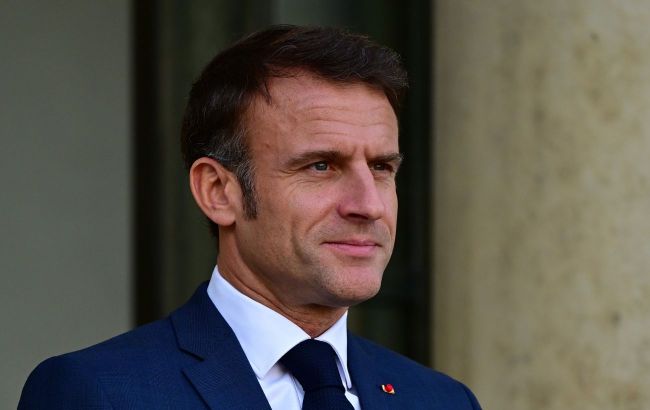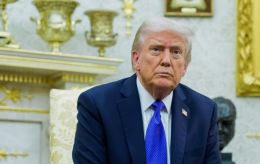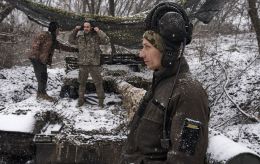Macron paying visit to Germany in first presidential stay in 24 years
 French President Emmanuel Macron (Getty Images)
French President Emmanuel Macron (Getty Images)
French President Emmanuel Macron is leaving for Germany. This visit is the first trip of the French leader to Germany in the last 24 years, according to Reuters.
Macron arrives in Germany on Sunday, May 26, for a three-day state visit. A bilateral cabinet meeting will follow.
"Macron's trip to the capital Berlin, Dresden in the east and Muenster in the west is the first French presidential state visit to Germany in 24 years," the media says. "The visit will be watched as a checkup on the health of the German-French relationship that drives EU policymaking, at a time of major challenges for Europe: from the Ukraine war to the possible election of Donald Trump as US president in November."
According to Mujtaba Rahman, managing director of the Eurasia Group think tank in Europe, quoted by the media, this visit is "an attempt at the highest political level to demonstrate that the relationship is working."
"But there are still fundamental gaps on major questions that are looming over the EU," he said.
One of the key such gaps, according to Reuters, is European defense, in particular, if Trump wins the US presidential election on November 5. Defense experts see him as a much less predictably reliable ally for Europe than the current US president, Joe Biden.
Macron and Scholz
French President Emmanuel Macron and German Chancellor Olaf Scholz have very different leadership styles and have publicly argued over issues ranging from defense to nuclear energy since the latter came to power in late 2021.
According to Reuters, France, having nuclear weapons, favors a more independent Europe on defense and was offended by Germany's decision to buy mostly American equipment for its European Sky Shield air defense initiative.
Recently, they have reached compromises on a variety of issues, from fiscal reform to government change, allowing the EU to strike deals and present a more united front.
"There are tensions in the German-French relationship but in part precisely because they have dealt with some difficult topics," said Yann Wernert at the Jacques Delors Institute in Berlin, noting the two countries had also united on the need to expand the EU to the east.
Earlier, RBC-Ukraine reported that Donald Trump threatened NATO member states to encourage Russia to "do whatever it wants" with them if they do not fulfill their financial obligations to the Alliance.

